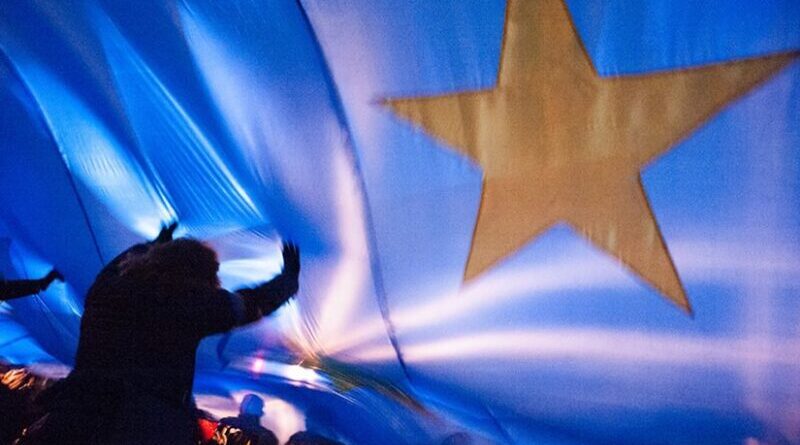Seven Reasons Why Putin’s War In Ukraine Is Turning Point In Russian And World History – OpEd
By Paul Goble
As the world’s attention shifts, many Russians and many in the West are telling themselves that Vladimir Putin’s war against Ukraine has been a war like any other regardless of whether they support it or not. But in fact, as Arkady Babchenko points out, this has been something else, “a point of bifurcation” and a fundamental turning point in Russian and world history.
Citing the Ukrainian commentator’s words with approval, US-based Russian commentator Kseniya Kirillova lists seven reasons why Babchenko is right, reasons that no one should forget or even worse dismiss as the world “moves on” from Ukraine and Russia to other issues (ru.tsn.ua/blogi/themes/politics/ne-prosto-voyna-617639.html).
First, as Kirillova points out, Putin’s war in Ukraine began with the Anschluss of Crimea, the first time since World War II that “one state in Europe annexed part of another sovereign state.” That action “violated all the recognized borders in Europe, the entire system of guarantees and international treaties which existed in the world and the world order as such.”
Second, the Russian intervention was based entirely on lies rather than reflecting real concerns. There was no ethnic genocide against ethnic Russians, as Moscow charged, nor did the regime that emerged from the Ukrainian Revolution of Dignity represent “a fascist junta,” as Putin continues to say.
Third, despite the obvious role of Russian troops in Crimea and the Donbas, Moscow has denied they are there, only occasionally acknowledging what it can’t say isn’t true but confusing the situation enough for some to allow them to include the Kremlin’s version of reality in the list of all versions.
Fourth, Putin’s war in Ukraine has been marked by “a particular level of cynicism and shamelessness” by Russians who have no excuse not to know what is going on in Ukraine, a country with which they have shared many, and instead have been willing to believe whatever the Kremlin and Kremlin TV tell them.
Fifth, as Kirillova writes, “the war in the Donbas has destroyed all those values on which the Russian state had been based and had supported in recent years,” transforming Russia from a country aspiring to be a modern European state back into an evil empire and dictatorship.
Sixth, “the war in the Donbas has irreversibly changed Russia itself” by involving far more people in the criminal activities of the Russian state and leading them to lie about what they and that state are doing and to become increasingly hostile to anyone who questions what Putin and they are doing.
And seventh, the war has “irreversibly changed Ukraine and the place of Russia in the post-Soviet arrangement of the world” by promoting hostility among peoples as a whole, attitudes that undermine the principle of citizenship and cooperation and that will not be overcome for decades and perhaps longer.
For all these reasons and more, Kirillova concludes, “the war in the Donbas really has become a turning point not only in Russia but even in contemporary European history. All of the consequences of this are not yet recognized or even fully manifest. But the longer Russians” – and one should add all others – “close their eyes to them, the more pernicious these will be.”

